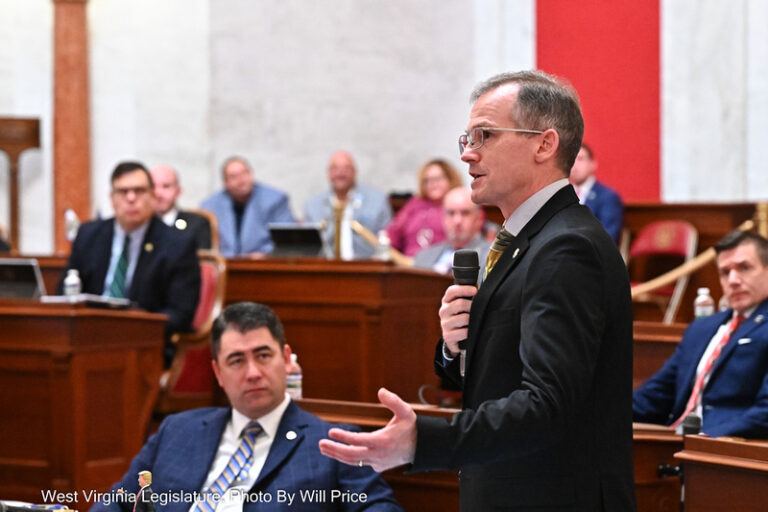Over the past few weeks, we have learned that approximately 1,500 West Virginians will lose their jobs as large companies close their workplaces.
Cleveland-Cliffs announced that its tinplate manufacturing plant in Weirton will cease operations in April, potentially resulting in the loss of 900 employees. Allegheny Wood Products has since closed its operations and cut approximately 600 jobs across multiple locations.
Despite these job losses, the Senate Finance Committee on Saturday considered two bills that would significantly limit unemployment benefits in West Virginia.
The bill now goes to the full Senate. Committee members noted that very similar bills have been introduced in the past few years but have not passed.

Organized Labor Party leaders said they are calling on their members to contact their senators and representatives and tell them to reject any attempts to strip them of unemployment benefits.
“This is probably the most callous act I've seen in my 25 years representing workers on Capitol Hill,” said Josh Sword, president of the West Virginia AFL-CIO.
“Depriving almost 2,000 hard-working people of their wages who are losing their jobs through no fault of their own is unimaginably cruel and completely unnecessary.”
The director of Workforce West Virginia testified before the committee that the most important reason for the change was to strengthen the state's unemployment trust fund. The trust fund balance currently stands at $387,657,779.05.
State officials cited economic modeling that shows an extended period of 10% unemployment could bankrupt the trust fund in 91 weeks. In other words, the state's unemployment trust fund could be depleted in less than two years in a recession deemed severe.

“We are trying to be proactive because the trust fund balance is going in the wrong direction,” Workforce West Virginia Acting Director Scott Adkins told senators.
“Severe recession — 18 months. We're going to have to ask this organization for funding or we're going to turn to the federal government.”
Senate Bill 840 makes various changes, the most important of which is the use of West Virginia's seasonally adjusted unemployment rate to determine the maximum number of weeks of benefit eligibility. So, for example, if the average unemployment rate is less than 5.5 percent, the maximum duration of benefits would be 12 weeks.
According to recently released statistics, West Virginia's unemployment rate was 4.3 percent. The current maximum duration of unemployment benefits is 26 weeks.
The bill states that West Virginians can only remain eligible for unemployment benefits if they apply for work at least four times each week. There are 10 qualifying activities, such as filling out application forms and taking the civil service exam.
The bill would lower the maximum weekly benefit rate from the current 66% to between two-thirds and 55% of West Virginia's average weekly wage. According to the bill, the amount cannot exceed $550.
Senate Bill 841 focuses on unemployment taxes and benefits. This is a companion bill that reflects some of the changes proposed by SB 840.

Lawmakers on the Senate Finance Committee brought up the situation at Cleveland-Cliffs Co. and Allegheny Wood Products Co. and wondered how it would affect the state.
“Recently, two large employers in the state have ceased operations. How will that affect the fund?” asked Sen. Jack Woodrum, R-Summers.
Adkins said the closure will have a significant impact, even though the state is helping laid-off employees find other jobs as quickly as possible. “Certainly it could have a big impact on the trust fund,” he says.

Sen. Mike Oliverio (R-Monongalia) also asked about the impact of closures like Allegany Wood Products.
“I'm worried about this trigger that could limit employment benefits even though we have some pretty good wage earners. We think a lot about unemployment insurance for people who are on lower wages, but they I'm a little nervous about us stepping in now with a cap because these are people who are getting paid pretty well and they're trying to temporarily replace that.”
Oliverio wanted to know if there were any alternatives.
Adkins said that's up to Congress.
“So I don't want to convey that the trust fund is in dire straits. It's not. It's in pretty good shape,” he said. “But once the Great Recession peaks down, it could have a pretty significant impact on trust funds.”


